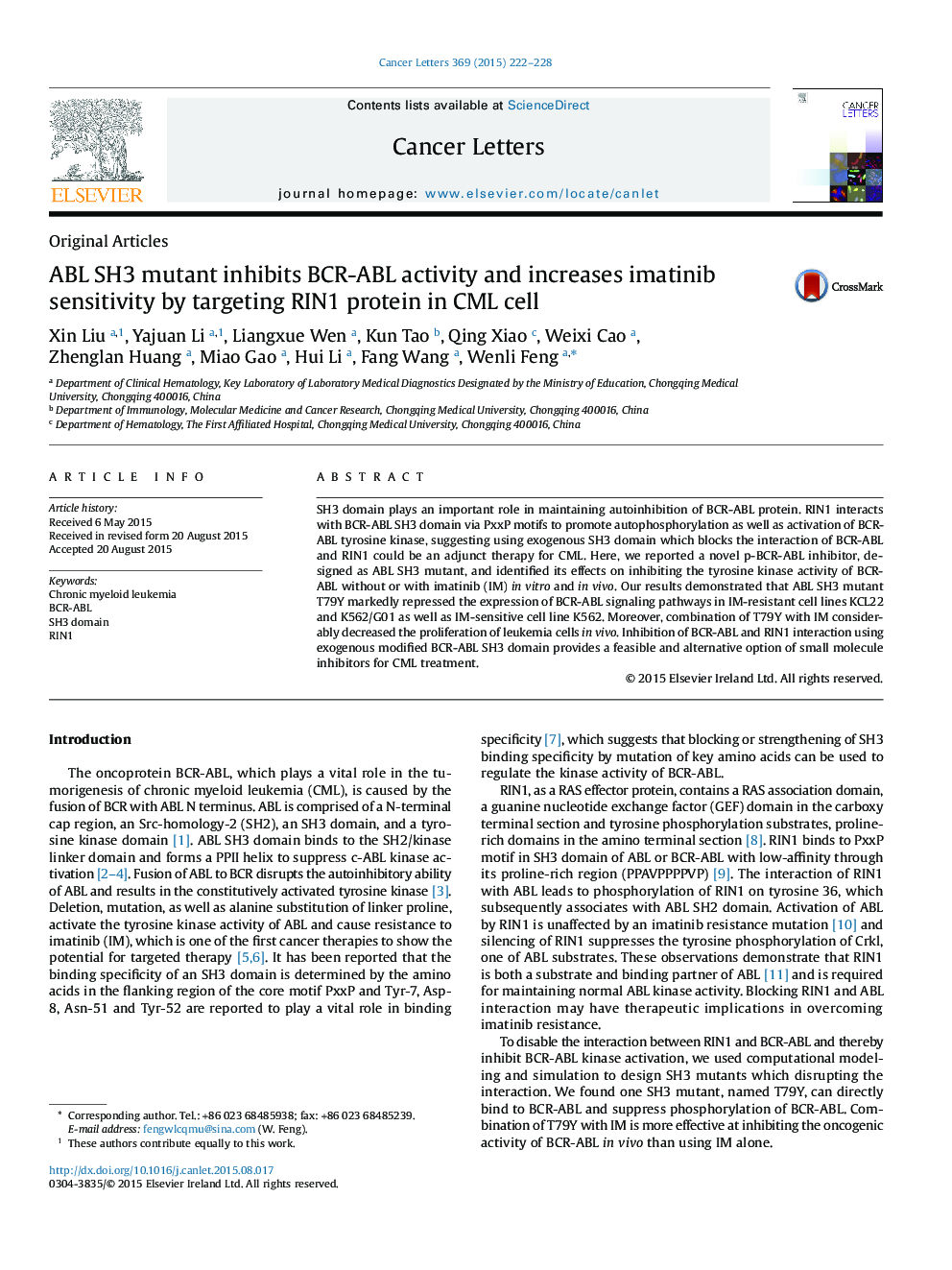| Article ID | Journal | Published Year | Pages | File Type |
|---|---|---|---|---|
| 10901924 | Cancer Letters | 2015 | 7 Pages |
Abstract
SH3 domain plays an important role in maintaining autoinhibition of BCR-ABL protein. RIN1 interacts with BCR-ABL SH3 domain via PxxP motifs to promote autophosphorylation as well as activation of BCR-ABL tyrosine kinase, suggesting using exogenous SH3 domain which blocks the interaction of BCR-ABL and RIN1 could be an adjunct therapy for CML. Here, we reported a novel p-BCR-ABL inhibitor, designed as ABL SH3 mutant, and identified its effects on inhibiting the tyrosine kinase activity of BCR-ABL without or with imatinib (IM) in vitro and in vivo. Our results demonstrated that ABL SH3 mutant T79Y markedly repressed the expression of BCR-ABL signaling pathways in IM-resistant cell lines KCL22 and K562/G01 as well as IM-sensitive cell line K562. Moreover, combination of T79Y with IM considerably decreased the proliferation of leukemia cells in vivo. Inhibition of BCR-ABL and RIN1 interaction using exogenous modified BCR-ABL SH3 domain provides a feasible and alternative option of small molecule inhibitors for CML treatment.
Related Topics
Life Sciences
Biochemistry, Genetics and Molecular Biology
Cancer Research
Authors
Xin Liu, Yajuan Li, Liangxue Wen, Kun Tao, Qing Xiao, Weixi Cao, Zhenglan Huang, Miao Gao, Hui Li, Fang Wang, Wenli Feng,
